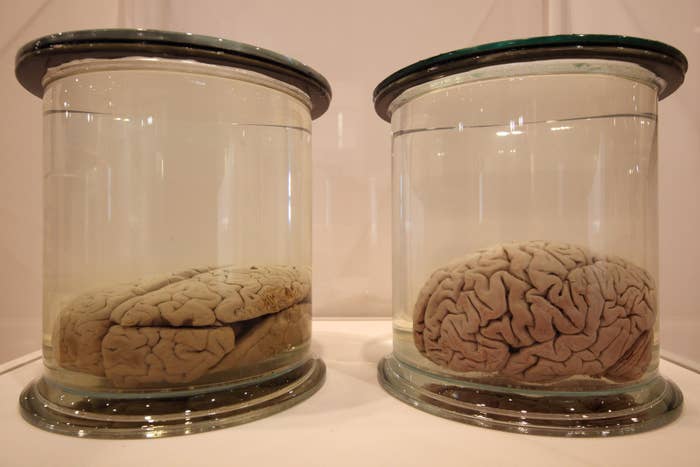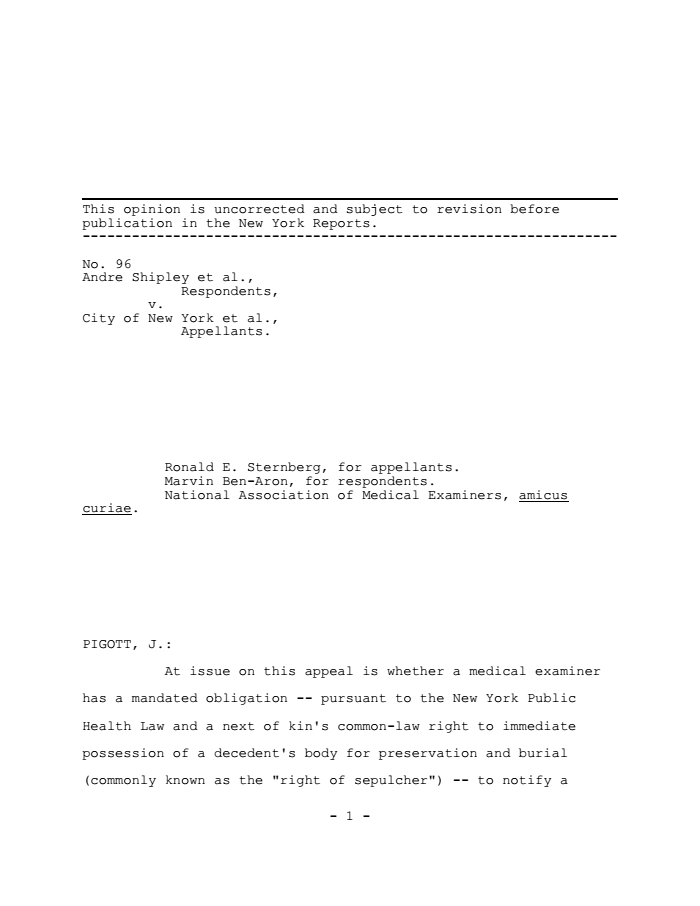
The New York State Court of Appeals decided on Wednesday that coroners have no obligation to tell you whether they removed your loved one's brain during an autopsy.
The bizarre decision comes at the conclusion of Andre Shipley v. City of New York, a case in which the family of a 17-year-old boy sued after they learned they had buried most — but not all — of their son.
Jesse Shipley was a Staten Island high schooler who died in a car crash on January 9, 2005. As is common practice in such accidents, the city's medical examiner obtained the family's permission to perform an autopsy on the teenager.
During the procedure, according to the Court of Appeals, the medical examiner removed Shipley's brain and placed it in a jar of preserving fluid that had been labeled with the teenager's name. The jar was then put in storage at the Staten Island mortuary.

The city then returned the rest of Shipley's body to the family, who conducted a funeral for the boy on January 13, 2005.
Then, in March of that year, some of Shipley's high school classmates took a field trip to the mortuary. They were given a tour of the autopsy room, where they saw a jar labeled with their dead friend's name — and a brain floating in formalin.
It was, as the city's press release put it on Wednesday, "an unfortunate coincidence."
The Shipleys then sued the city, alleging "negligent infliction of emotional distress resulting from the display and alleged mishandling and withholding of their son's brain," according to the decision. For its part, the city argued the removal of the teenager's brain was authorized by law.
The case went to trial at the Appellate Division, where the Shipleys won $1 million in damages. The city then appealed, sending the suit to the Court of Appeals — the highest in New York State.
The court then entered a debate on the true definition of the common law's "right to sepulcher," preserved in the dissenting opinions that accompany the court's final decision. At one point, for example, the arguments centered on the Catholic theology of burials:
After plaintiffs confirmed that Jesse's brain had been removed and retained, they spoke with their priest, who informed them that their son's burial was not proper without the remaining body parts. In response to the plaintiff's request, the Medical Examiner's Office returned the brain and the retained samples of several other organs to the family. Plaintiffs then concluded a second funeral and burial service for their son, months following the first.
In the end, however, the Court of Appeals decided 6 to 2 that the Shipleys had no legal basis to demand damages from the city for the fate of their son's brain. The court reversed the verdict and ordered the complaint dismissed in its entirety.

